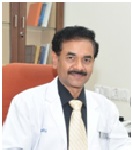Theme: Tracking and Tackling Drug Developments in Pharmacology
Pharmacology-2015
OMICS International invites all the participants across the globe to attend 'World Congress on Pharmacology' during July 20-22, 2015 in Brisbane, Australia which includes prompt keynote presentations, Oral talks, Poster presentations and Exhibitions.
Pharmacology meeting 2015 focuses on the importance to understand drugs and how they can affect human physiology. It is with better understanding of Pharmacology one can know the right dosage and dosage forms of drugs. More research in pharmacology deals with identifying and responding to drug interactions and its side effects along with its mechanism of action, its therapeutic index and thereby treat accordingly. More intensive study in pharmacology congress deals with the interaction between drug and its therapeutic effect helps to identify the properties of ideal drugs.
OMICS International Organizes 300+ Conferences Every Year across USA, Europe & Asia with support from 1000 more scientific societies and Publishes 500+ Open access journals which contains over 30000 eminent personalities, reputed scientists as editorial board members.
Track 1: Clinical Pharmacology and Receptor Theory
Clinical Pharmacology has been practiced for centuries through observing the effects of herbal remedies and early drugs on humans. The pharmacologic effect that a medication has on the body is known as pharmacodynamics. Pharmacokinetic and pharmacodynamic parameters become important because of the association between host drug concentrations, microorganism eradication, and resistance.Since long scientific advances allowed scientists to come togetherwith the study of physiological effects with biological effects. Receptor theory for drug effects and its discovery with clinical pharmacology has stretched out to be a multidisciplinary field and has contributed to the findings of drug interaction, therapeutic effectiveness and safety. Drug interactions and pharmacological compatibilities includes the study of pharmacokinetics that includes the absorption, distribution, metabolism, and elimination of drugs. The pharmacologic effect that a medication has on the body is known as pharmacodynamics. Pharmacology screening works on pharmacokinetic and pharmacodynamic parameters become especially important because of the association between drug application, microorganism abolition, and resistance.
Track 2: Neuropharmacology and Psychopharmacology
Psychopharmacology is the learning of the effects of medication on the psyche (psychology), observing changed behaviors and how molecular events are manifest in a measurable behavioral form. Neuropharmacology is the study of the effects of medication on central and peripheral nervous system performance. Principles related to psychopharmacology. Pharmacology conferences 2015 are conducted extensively world wide focus on neurogenesis and repair that in turn deal with other aspects on the indications for medications prescribed to address psychiatric and behavioral problems, that are associated with, including antipsychotic, anxiolytic and anticonvulsant medications, acquired brain injury and Neurocognitive effects associated with therapeutic drugs also include mood stabilizers and treatments prescribed for disorders of attention. The treatments may cause side effects such as induction of the metabolic syndrome, type 2 diabetes related to the medications prescribed for management of psychiatric and behavioral disorders and disturbances.Ethnaophsychopharmacology also deals with the biotransformation and metabolism of medications, as well as specific differential actions: i.e., CYP450 enzymatic inhibition and induction of metabolism of psychopharmacological and herbaceutical substrates.
Track 3: Cardiovascular Pharmacology
Cardio pharmacodynamics of digitalis is most frequently used to increase the adequacy of the circulation in patients with CCF and to slow the ventricular rate in patients with atrial fibrillation or flutter NB: the main action of digitalis is its ability to increase myocardial contractility its positive inotropic action results in, a. increased cardiac output b. decreased heart size c. decreased venous pressure d. decreased circulating blood volume e. diuresis and relief of oedema as digitalis frequently causes a dramatic reduction in the ventricular rate, it was originally believed this was the main effect subsequently shown to be beneficial irrespective of the HR, its predominant effects being on contractility in addition to the cardiac effects, digitalis has a direct action on, a. vascular smooth muscle b. neural tissue the later being responsible for indirect cardiac actions of the drug finally, changes to the circulation brought about by digitalis frequently result in reflex autonomic & hormonal changes which affect the CVS.Role of drugs in coronary circulation the circulatory system is busy providing oxygen and nourishment to every cell of the body, let's not forget that the heart, which works hardest of all, needs nourishment, too. Coronary circulation refers to the movement of blood through the tissues of the heart. The circulation of blood through the heart is just one part of the overall circulatory system. Pharmacology of vascular endothelium deals with alterations of endothelial cells and the vasculature play a central role in the pathogenesis of a broad spectrum of the most dreadful of human diseases, as endothelial cells have the key function of participating in the maintenance of patent and functional capillaries. The endothelium is directly involved in peripheral vascular disease, stroke, heart disease, diabetes, insulin resistance, chronic kidney failure, tumor growth, metastasis, venous thrombosis, and severe viral infectious diseases. Dysfunction of the vascular endothelium is thus a hallmark of human diseases. In this review the main endothelial abnormalities found in various human diseases such as cancer, diabetes mellitus, atherosclerosis, and viral infections are addressed.
Track 4: Vascular Pharmacology and Hematological principles
Vascular biology is a broad range of science that is pertaining to, composed of, or provided with vessels that convey fluids, as blood or sap.Pharmacology of drugs affecting fluid and electrolyte balance,such as sodium, calcium and potassium, are important minerals in the body responsible to sustain acid levels, muscle functioning. A number of aspects can lead to electrolyte imbalance which may cause excessive sweating, medical conditions, and medications. Symptoms of electrolyte imbalance depend upon the precise mineral affected but can comprise fatigue, muscle cramping, weakness, irregular heartbeat, confusion and blood pressure changes. Effect of gene expression in endothelial cells deals with the development of a multicellular organism and physiological responses that require massive coordinated changes in gene expression across several cell and tissue types.
Track 5: Pharmacogenetics and Pharmacogenomics
Recent advances in DNA repair are DNA interstrand cross-links (ICLs) are lesions caused by a variety of endogenous metabolites, ecological exposures, and cancer chemotherapeutic agents that have two reactive groups. The general feature of these diverse lesions is that two nucleotides on opposite strands are joined covalently. Mutagenicity and carcinogenicity are clearly correlated. The somatic mutation theory of cancer holds that these agents cause cancer by causing the mutation of somatic cells. A unique feature of inter-strand cross-links repair is that both strands of DNA must be incised to completely remove the lesion. Drug dosing guidelines accomplished in sequential steps to prevent creating multiple double-strand breaks. Understanding the specificity of mutagens in bacteria has led to the direct implication of certain environmental mutagens in the causation of human cancers.
Track 6: Toxicology
Toxicology is the study of the undesirable effects of chemicals on living organisms. It is the study of symptoms, mechanisms, treatments and detection of poisoning, especially the poisoning of people.Principles of management of a poisoned patientand relationship between dose and its effects on the exposed organism deals with important criterion regarding the toxicity of a chemical is the dose, i.e. the amount of exposure to the substance. Hypothesis and data driven research focuses on substances that are toxic under the right conditions. The term LD50 refers to the dose of a toxic substance that kills 50 percent of a test population .LD50 estimations in animals are no longer required for regulatory submissions as a part of pre-clinical development package. Toxicity associated with metabolites is the conventional relationship has been challenged in the study of endocrine disruptors. There are various specialized sub disciplines within the field of toxicology that concern diverse chemical and biological aspects of this area. Toxicology has played a significant role in verifying conclusions drawn on the basis of epidemiological findings.
Track 7: Experimental Pharmacology, Drug screening and discovery
Reverse pharmacology includes drug screening deals with reverse pharmacology and forward pharmacology are two approaches to drug discovery. Target based drug discovery is the process through which potential new medicines are identified. It involves a wide range of scientific disciplines, including biology, chemistry and pharmacology,screening of chemical libraries and its pharmacology,methods to determine biological targeting,By systematically perturbing and interrogating biological pathways with synthetically novel chemical tools, preclinical validation of target biology is beginning to illuminate a more cost effective and efficient paradigm for the development of novel drugs modulating novel targets. Pharmacology conference for nurse practitioners 2015 are the newly evolving field in Pharmacology.
Track 8: Latest trends in drug development & drug delivery systems
Liposomes and nanoparticles: Nanoscale drug delivery systems using liposomes and nanoparticles are rising technologies for the rational delivery of chemotherapeutic drugs in the treatment various ailments. Nanoparticles present possible dangers, both medically and environmentally. Most of these are due to the high surface to volume ratio, which can make the particles very reactive or catalytic. They are also able to pass through cell membranes in organisms, and their interactions with organic systems are relatively. It is unlikely the particles would enter the cell nucleus, and other internal cellular components due to the particle size and intercellular agglomeration. For drug delivery, Epigenetic mechanisms of importance for drug treatment.Pharmacometrics is the science which deals with quantitative description of disease, drug effects and variability. There are varies and applied techniques used in accelerator mass spectrometry to pharmacology and toxicology.
Track 9: Ethanopharmacology
Integrative Pharmacological Investigations include conglomeration of more number of pharmacological aspects and aggregated scientific research of two or more drugs. Natural products of chemistry in drug discovery play a vital role in bringing advances in traditional drug treatments. Chemistry and structural elucidationof drugs accelerates potential treatment options in the evolving developmental changes. Natural and synthetic derivatives in pharmacological studies are important aspect of advances in the development and investigation that avoid adverse drug reactions of the synthetic medicine. Mere change in the structures of the drugs can cause potential differences in efficacy and therapeutics of drug treatment.
Market Analysis: ‘Pharmacology’ is an international forum to present and discuss current perspectives in drug research. Pharmacology is the unified study of the properties of chemicals and living organisms and all aspects of their interactions. It is an integrative rather than anautonomous science, drawing on the techniques and knowledge of many allied scientific disciplines. Pharmacology and pharmacodynamics meetings will be a platform for researchers, scientists, professional involved with drug development. Professors and Students from Academia in the study of Marketing and Advertising filed. Directors/Managers & Business Intelligence Experts, Departmental Managers, Vice Presidents/ Directors & Brand Manufacturers/ Marketers of Consumer Products retailers, marketing, advertising and promotion agency executives, solution providers (digital and mobile technology, P-O-P design, retail design, and retail execution). As outsourced services in developing countries such as China and India move up the value chain to cover phase 1/2 trials, the total contracts value may increase to $30 billion by 2015.
Conference Highlights
- Clinical Pharmacology and Receptor Theory
- Neuropharmacology and Psychopharmacology
- Revolutionary advances in systemic pharmacotherapy and chemotherapy
- Pharmacogenetics and Pharmacogenomics
- Pharmacoepidemiology and Pharmaco-economics
- Forensic Pharmacology, Toxicology and Toxinology
- Theoritical Pharmacology
- Posology
- Vascular Pharmacology and Haematological principles
- Cardiovascular Pharmacology
- Pharmacognosy, Phytochemistry and Pharmacological Screening
- Latest Trends in Pharmacological Drug Developments
- Experimental Pharmacology, Drug screening and discovery
- Veterinary Pharmacology and Therapeuitics
- Clinical trials, Regulatory directives and Rational Pharmacotherapy
- Revolutionary advances in systemic pharmacotherapy and chemotherapy
To share your views and research, please click here to register for the Conference.
To Collaborate Scientific Professionals around the World
| Conference Date | July 20-22, 2015 | ||
| Sponsors & Exhibitors |
|
||
| Speaker Opportunity Closed | Day 1 | Day 2 | Day 3 |
| Poster Opportunity Closed | Click Here to View | ||
Useful Links
Special Issues
All accepted abstracts will be published in respective Our International Journals.
- Clinical & Experimental Pharmacology: Open Access
- Clinical Pharmacology & Biopharmaceutics: Open Access
- Journal of Forensic Research: Open Access
Abstracts will be provided with Digital Object Identifier by























